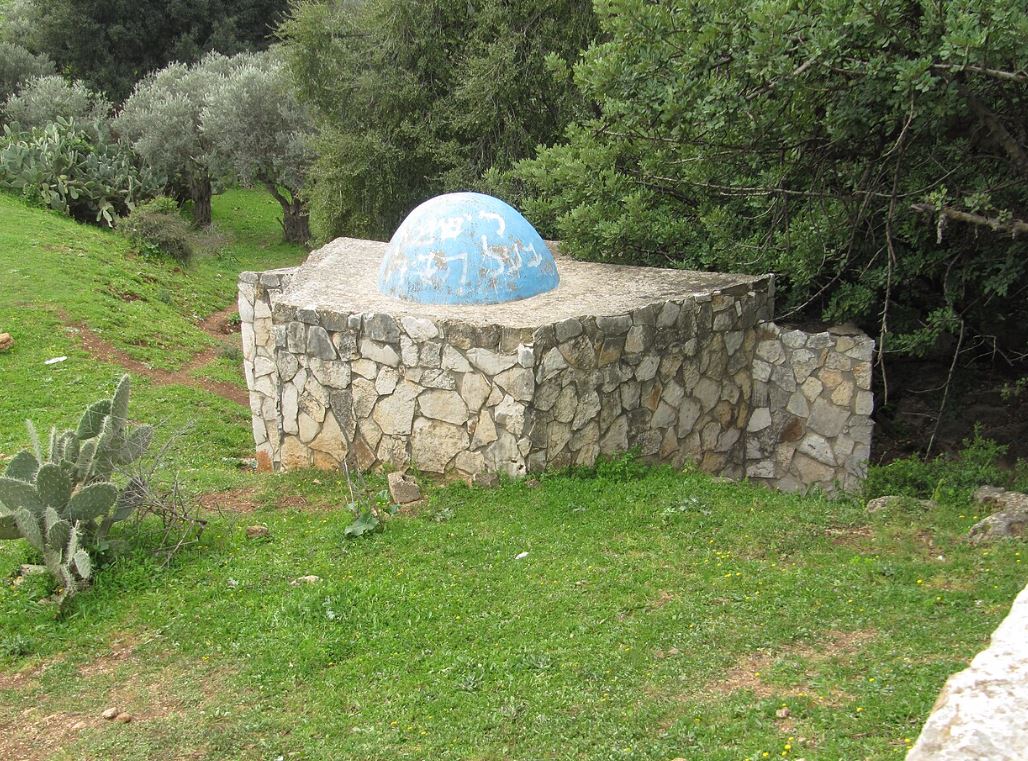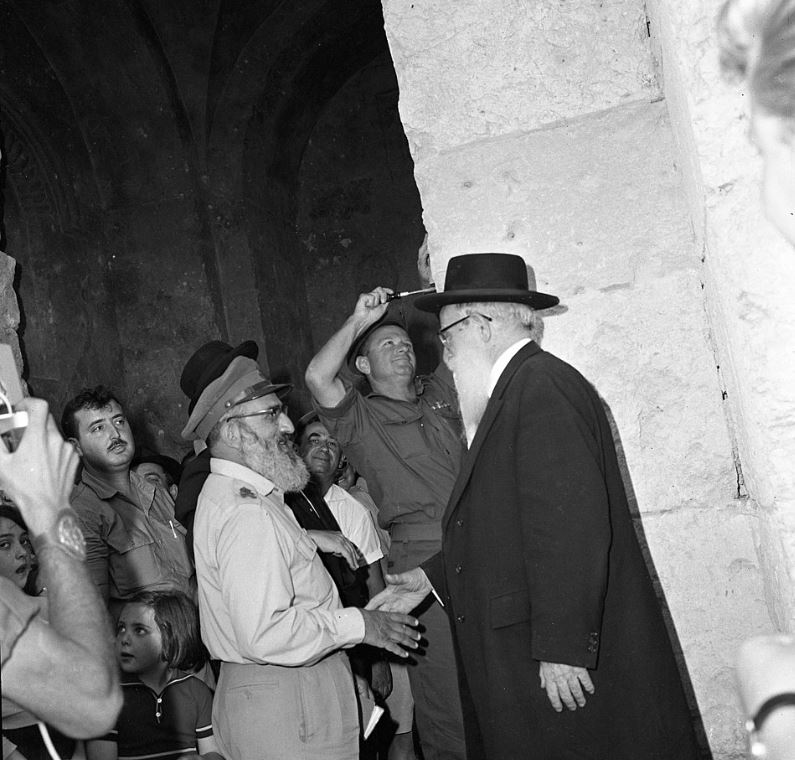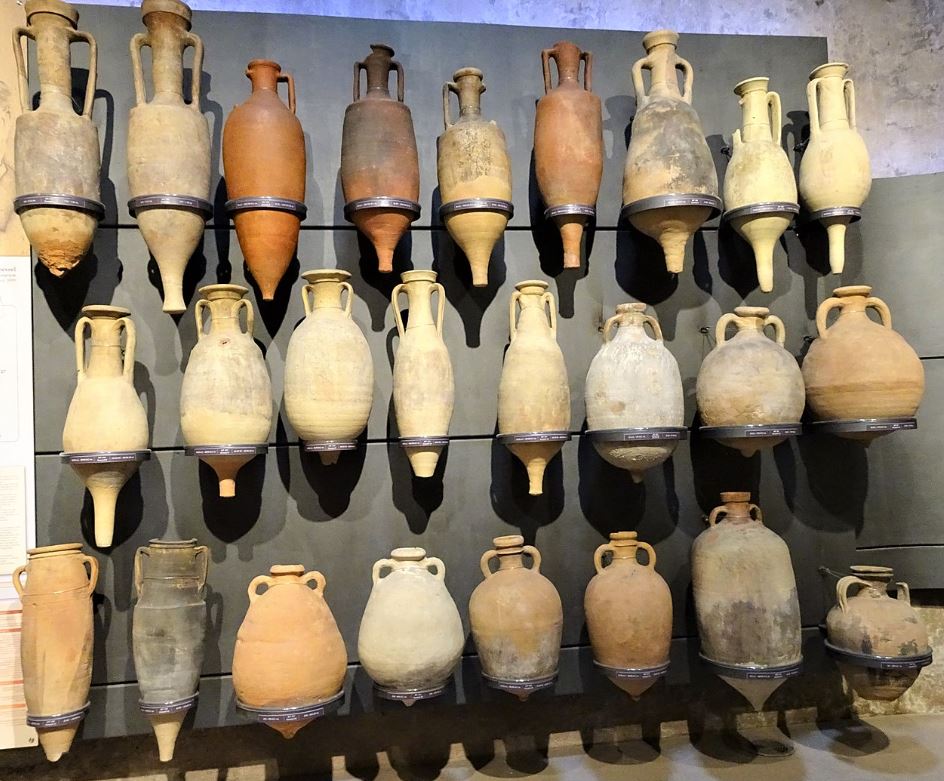One of the so called “minor” fasts in Judaism falls just a week before Yom Kippur and right after Rosh HaShanah – Tzom Gedaliah. Our Gemara mentions it in passing, in connection to vows about fasting:
“I will not eat meat and I will not drink wine like on the day . . that Gedaliah ben Ahikam was killed” (Shevuot 20a)
Gedaliah’s fast is unusual in the Jewish calendar. Besides him, only Esther gets a fast named for her and that is because she is the one who fasted and told others to do so. But with Gedaliah we fast because he was killed. Why was his death so significant?
The time is the early sixth century BCE. After the Babylonians have exiled the elite of the land in 597 BCE, they install a puppet king, Zedekiah, the last king of Judah. While they hope to continue to rule over Judah and profit from her lands, the Judeans continue to revolt against them. Finally, Nebuchadnezzar the Babylonian king sends his general Nevuzaradan to destroy the Temple and the city of Jerusalem, and exile the people to Babylonia.
But Nebuchadnezzar does not want to lost the income he can make from the land, which is still fertile. He leaves behind the poorest people to work the fields and vineyards:
“But some of the poorest in the land were left by the chief of the guards, to be vinedressers and field hands” (Kings II 25:12)
The rabbis interpret this verse as referring to plantations of balsam, to make valuable perfume, and collection of snails to make the expensive techelet dye. Meanwhile these workers cannot be left without a leader. Gedaliah ben Ahikam is appointed as their governor and he assures the remaining Judeans that all will be well:
“Gedaliah son of Ahikam son of Shaphan swore to them and their men, saying, “Do not be afraid to serve the Chaldeans. Stay in the land and serve the king of Babylon, and it will go well with you” (Jeremiah 40:9)
Why was Gedaliah chosen to lead the people? He came from one of the few righteous families in late First Temple times, the Shaphan family. Ahikam, Gedaliah’s father, saves Jeremiah from an angry mob. Gemaryahu the son of Shaphan, Gedaliah’s uncle, delivers Jeremiah’s prophecy of doom to King Yehoyakim and another uncle, Elasa, travels to Babylonia to tell the Jews there of Jeremiah’s message that the exile will last seventy years. Loyalty to God and to His prophet is interpreted by the Babylonian leadership to mean loyalty to Nebuchadnezzar, since Jeremiah counseled submission to the conqueror.
Gedaliah’s headquarters is a place called Mitzpah. The word means lookout and implies a place that is high up, with a wonderful view. It is in the land of the tribe of Benjamin. Although different suggestions have been given over the years as to the identity of Mitzpah, today most archaeologists say it is the site we call Nebi Samuel, towering over Jerusalem to the north. Centrally located, in an area that had submitted to Babylonian rule even before the destruction, with fertile land all around, Mitzpah is ideal for Gedaliah and the Babylonians. It is also a place which had a tradition of leadership and prayer (for example, in Samuel I 10).
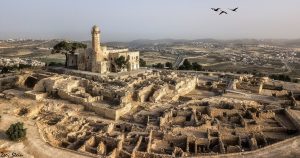
Heritage Conservation Outside The City Pikiwiki Israel, CC BY 2.5 <https://creativecommons.org/licenses/by/2.5>, via Wikimedia Commons
But alas there is no peace to be had at Mitzpah. One of the people who joins Gedaliah is a man named Yishmael ben Netaniah. He is of royal blood and probably jealous that Gedaliah has been chosen to rule. He is also hired by the king of Amon, Judah’s neighbor, to assassinate Gedaliah. Gedaliah’s loyal friend, Yohanan ben Kareah, tells Gedaliah of the plot but he dismisses Yohanan’s concerns:
“Yohanan son of Kareah, and all the army officers in the open country, came to Gedaliah at Mizpah and said to him, “Do you know that King Baalis of Ammon has sent Yishmael son of Nethaniah to kill you?” But Gedaliah son of Ahikam would not believe them” (Jeremiah 40:13-14)
In the seventh month, the month of Tishrei, during a shared meal, Yishmael and his cronies murder Gedaliah as well as his supporters. When unsuspecting Jews happen by a day later, they are murdered as well. Yishmael only spares those who can bribe him. Then he and his band prepare to escape to Amon. But Yohanan and his supporters ambush Yishmael in nearby Givon.
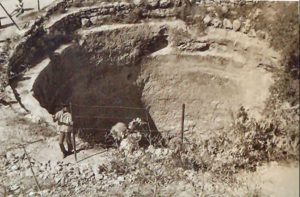
Givon pool 1980
דני ונטורה, CC BY-SA 3.0 <http://creativecommons.org/licenses/by-sa/3.0/>, via Wikimedia Commons
Yishmael escapes and Yohanan comes to Jeremiah to ask his advice. Jeremiah tells him that God’s message to them is to stay in the land and not to leave for Egypt:
“If you remain in this land, I will build you and not destroy, I will plant you and not uproot; for I regret the punishment I have brought upon you” (Jeremiah 42:10)
But Yohanan and his allies accuse Jeremiah of lying and they leave for Egypt, taking Jeremiah with them.
What are we to make of this sad tale? And why is it one of the fast days that has stayed with the Jewish people and will only be abolished in times of redemption?
“Thus said God of Hosts: The fast of the fourth month, the fast of the fifth month, the fast of the seventh month, and the fast of the tenth month shall become occasions for joy and gladness, happy festivals for the House of Judah; but you must love honesty and integrity” (Zechariah 8:19)
One explanation is that we are not mourning for Gedaliah but for the final exile from the Holy Land. Up until the assassination, there was a remnant who were in the land, even when the Temple had been destroyed. But with Gedaliah’s death, the last spark in the land was put out, not to return until the exiles came back from Babylonia decades later. While this is a logical explanation, archaeology does not bear it out. It seems that up to forty percent of the Jews stayed on in the land after the destruction. This has been determined by surveys of archaeological sites in the areas of Judah and Benjamin.
The commentary of the Ben Yehoyada on Rosh haShanah 18b offers us an alternative explanation. The Gemara tells us:
“ ‘The fast of the seventh,’ this is the third of Tishrei, on which Gedaliah, son of Ahikam, was killed. And who killed him? Ishmael, son of Nethaniah, killed him” (Rosh HaShanah 18b)
The Ben Yehoyada asks why we need to know that Gedaliah was murdered by Yishmael, this is not new information from the rabbis, it is explicit in the text! He explains that we fast for Gedaliah not because he was a righteous person who was murdered but because he was assassinated by another Jew. This was the terrible tragedy of Gedaliah’s murder, internecine violence among the Jewish people, and desecration of God’s name.
Perhaps in the spirit of the Ben Yehoyada, there are circles in Israel who commemorate a different terrible assassination on Tzom Gedaliah. The murder of Yitzchak Rabin by Yigal Amir on November 4 1995 shook the nation to the core. While many remember Rabin on that day, or on the corresponding Hebrew date 11 Cheshvan, some use Tzom Gedaliah as an opportunity for dialogue and bridge building among Jews, to ensure that there need not be any more fasts for stories like Gedaliah’s.
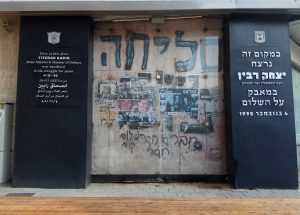
Avi1111 dr. avishai teicher, CC BY-SA 4.0 <https://creativecommons.org/licenses/by-sa/4.0>, via Wikimedia Commons




